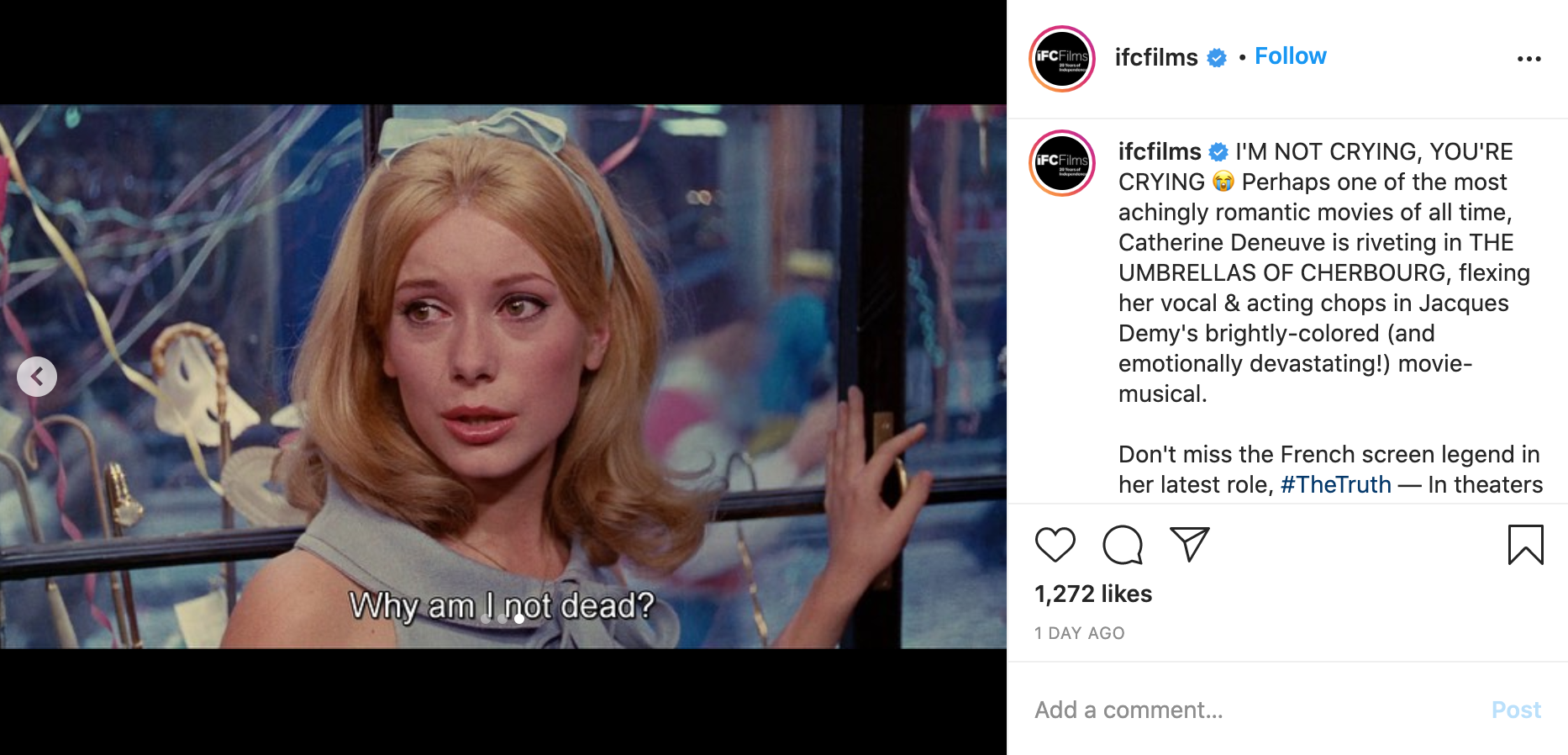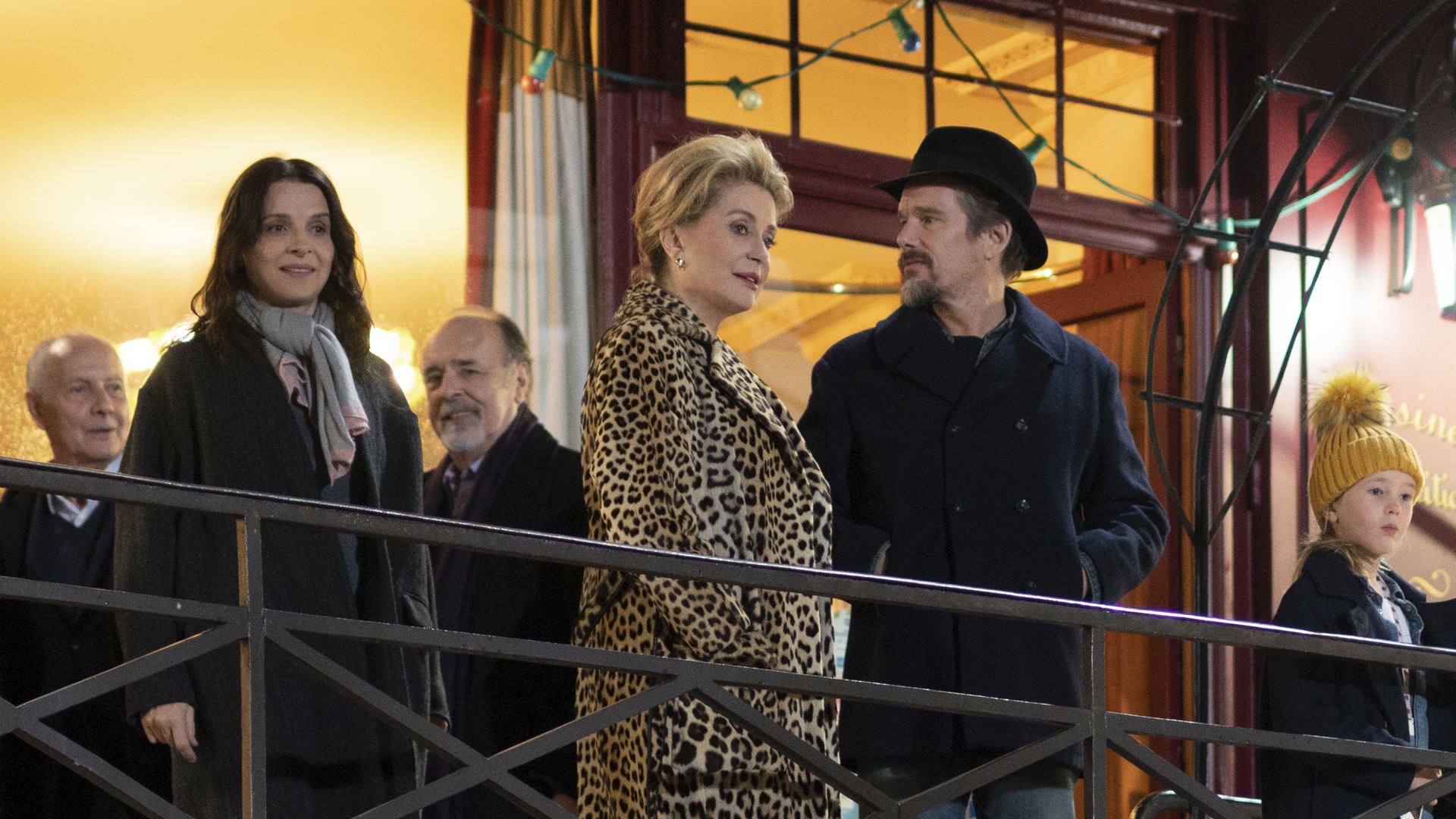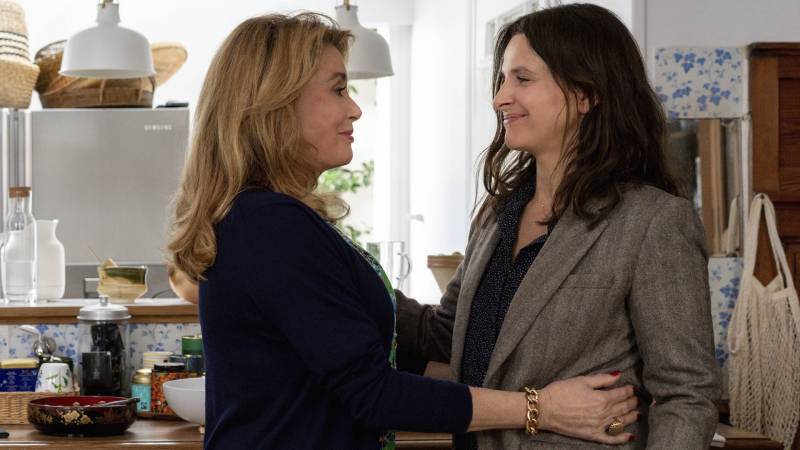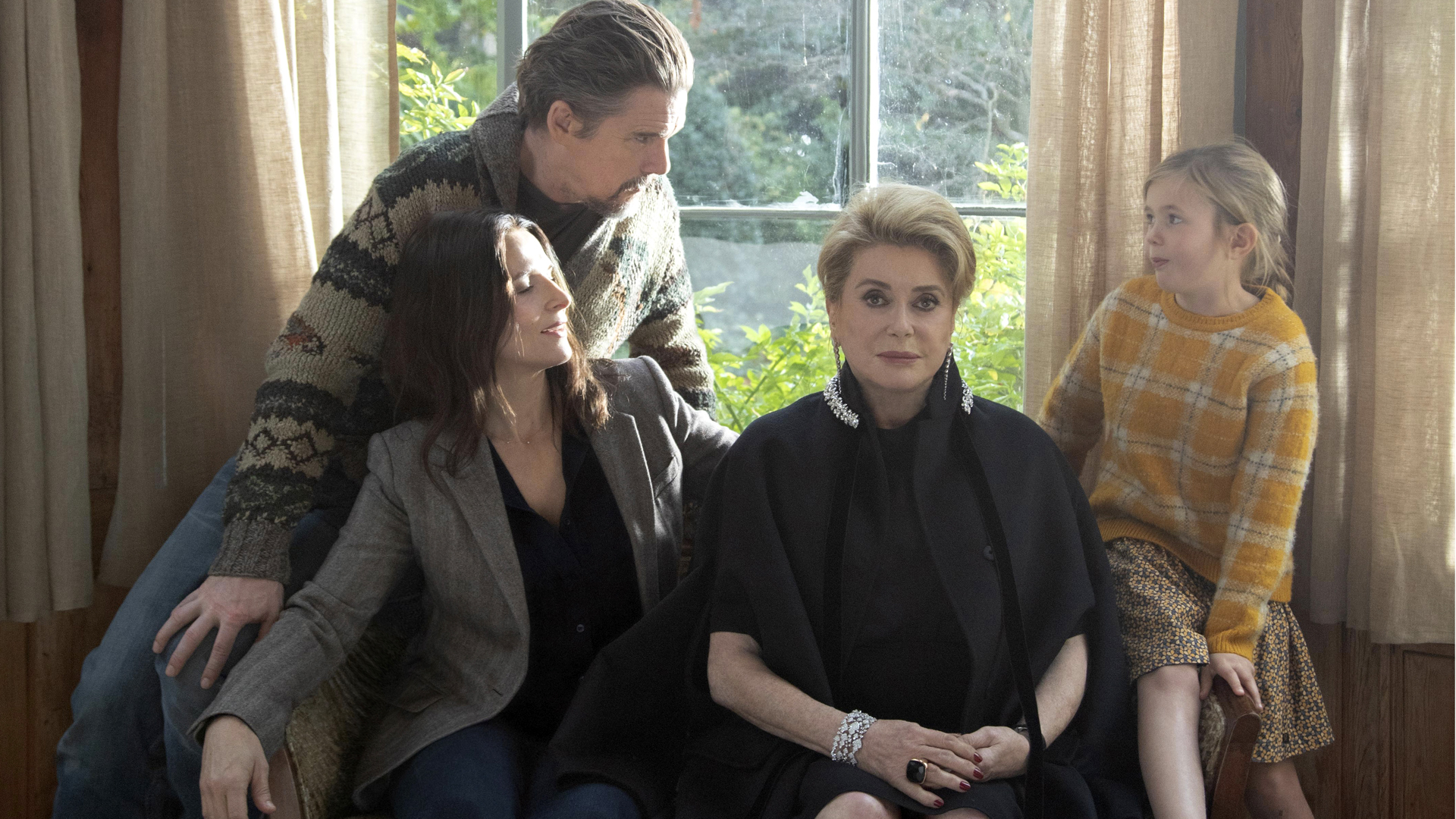Sweating through their underwear, a couple eats cold noodles on the floor of their living room. Between bites, the man compliments the woman’s new bra. She pauses, appraises it herself, then approaches his side of the table. Their first kiss is tentative. They haven’t had sex for a while. As they begin to lose their inhibitions, the camera leaves the room to give them some privacy. When it returns, the director closes in on a shot of noodles, spilled from a bowl, dripping down the side of the table.
That’s just one of a hundred intimate details the director Hirokazu Kore-eda captures in Shoplifters, his shrewd, moving and thoughtful feature from 2018. In his latest film, The Truth, he’s traded away such evocative visual metaphors—and their corresponding emotional intensity—for the opportunity to work with two French acting icons, Catherine Deneuve and Juliette Binoche.
And who can blame him? We all feel the draw of these stars. In the days leading up to the movie’s release, the American distributor, IFC Films, has launched a social media campaign that capitalizes on the affection and sense of nostalgia we feel for the careers of both actresses.

The Truth is essentially a two-hour extension of that advertising campaign. As Fabienne Dangeville (that surname translates as “from the city of angels”), Deneuve plays, of all things, an actress who’s just published her memoir. To emphasize her primary character flaw—a perpetual feeling of dissatisfaction—the director repeats her disappointed response to the temperature of her tea. Her devoted manservant (a little less creepy than Sunset Boulevard’s Max von Mayerling) serves it “lukewarm.” That adjective also encapsulates Fabienne’s attitude toward this phase of her career. She’s still receiving scripts and getting work in films. But when a journalist asks her about an upcoming project, she dismisses it as having no inherent artistic value. Nothing compares to the films she worked on in her heyday.
Shortly after Fabienne sniffs petulantly at another inadequate cup of tea, her daughter, granddaughter and son-in-law (Ethan Hawke, miscast and awkward) arrive at her charming suburban home. Binoche is Lumir (an abbreviated form of the French word for “light”), the daughter who moved to California to escape the long reach of her mother’s shadow. As far as mothers and daughters go, Deneuve and Binoche look nothing alike. But the real problem with accepting them as blood relatives is how far apart their temperaments are. When Binoche is at her best, critics praise her for being natural and authentic. Whereas Deneuve’s beauty and remote affect once seemed like some god’s divine creation. She was born—no, destined—to be a movie star.

They were cast opposite each other to embody these obvious tensions: opposing character traits and differing generational approaches to acting. But the makeshift family in Shoplifters looks and feels much more like a group of people who sleep, eat and steal things together on a daily basis. It may be a deliberate aspect of Kore-eda’s realistic approach to filmmaking, but you seldom believe that either actress in The Truth is either in character or developing one. The director hired them because he knows the audience loves to see their established personas. We know what will happen as the film progresses: Deneuve’s froideur will slowly melt away; Binoche’s easy tears will streak her face and her voice will break in sorrow.




